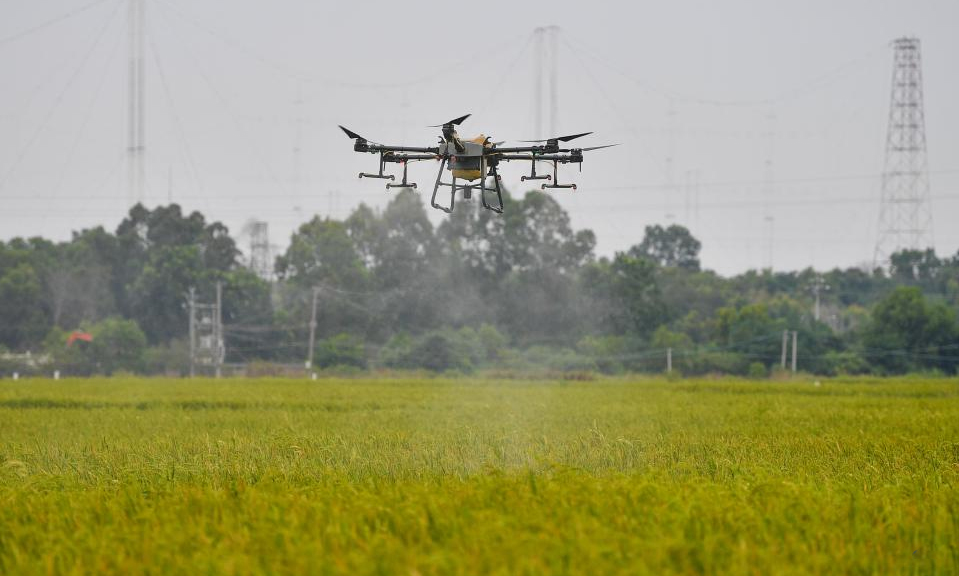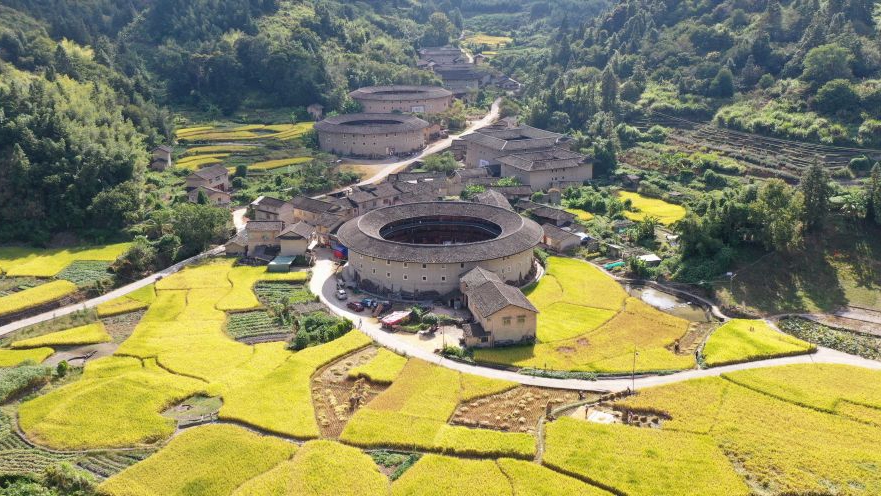Newly-elected Iraqi president calls for quick formation of new gov't

Iraq's newly-elected President Abdul Latif Rashid attends a ceremony in Baghdad, Iraq, Oct. 17, 2022. Rashid assumed office on Monday, expressing his hope for a quick formation of the new government. (Xinhua/Khalil Dawood)
BAGHDAD, Oct. 17 (Xinhua) -- Iraq's newly-elected President Abdul Latif Rashid assumed office on Monday, expressing his hope for a quick formation of the new government.
"We keep in mind what the Iraqi people are waiting for from the new government, which we hope will be formed quickly, and be strong, efficient, and unified to meet the people's aspirations for security, stability, and services," Rashid said in a televised speech during a ceremony held in the presidential palace in Baghdad.
Rashid pledged to protect the constitution, sovereignty, unity, and independence of Iraq, and to exert every effort to bring the political forces closer through dialogue, including solving the problems between the semi-autonomous region of Kurdistan and the central government in Baghdad.
"I will also seek to establish strong and balanced relations between Iraq, neighboring countries, and the international community to promote common interests," Rashid added.
On Oct. 13, the Iraqi parliament elected Rashid as the new president, marking a crucial step toward forming a new government for the country and ending a year of political deadlock.
According to the power-sharing system in Iraq after 2003, the presidency should be reserved for the Kurds, the parliament speaker's post for the Sunnis, and the prime minister's post for the Shiites.
Rashid's election came as political tensions have been rising in the past months between the Shiite cleric Moqtada al-Sadr's Sadrist Movement, the biggest winner in the parliamentary elections in 2021, and their rivals in the Coordination Framework (CF), an umbrella group of Shiite parliamentary parties.
Al-Sadr demanded to dissolve parliament and hold early elections, but it was rejected by the CF parties, which became the largest bloc after al-Sadr ordered his followers to withdraw from the parliament in June.
Photos
Related Stories
- New school year starts in Baghdad, Iraq
- 1 year after elections, Iraq enters new phase of political conflict
- Iraqi security officer killed in car-bombing attack
- GCC condemns Iran's deadly bombardments in Iraq's Kurdistan region
- UN mission, Arab League call for end to escalation amid political protests in Iraq
- Iraqi parliamentary Shiite blocs name candidate for new PM
- Iraq withdraws from Islamic games in Türkiye over deadly resort bombardment
Copyright © 2022 People's Daily Online. All Rights Reserved.









